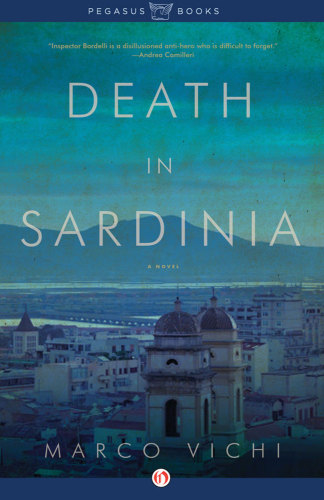
Death in Sardinia
Inspector Bordelli Series, Book 3
کتاب های مرتبط
- اطلاعات
- نقد و بررسی
- دیدگاه کاربران
نقد و بررسی

Starred review from January 6, 2014
Set in December 1965, Vichi’s exceptional third Inspector Bordelli mystery (after 2013’s Death and the Olive Grove) finds the 55-year-old Florentine policeman worried about his looming retirement. Bordelli, who has a compelling need for resolution, spends a couple of weeks investigating the death of a loan shark that no else really cares about. As the inspector methodically homes in on a suspect, his sidekick, Piras, who’s recovering from a gunshot wound, privately pokes holes into what appears at first to be a suicide, but turns out to be something much darker. The charm of the series is the window it provides on Bordelli’s character. He’s a man of many quirks—anxious about the future, conflicted about the women in his life, haunted by his war experiences two decades earlier. He takes life slowly, yet the many detours of his day—lunches at his favorite trattoria, the angst he feels while Christmas shopping for his lady friend, hospital visits to a dying colleague—engage the reader in far more than just the search for a murderer.

March 15, 2014
Despite the title, Inspector Franco Bordelli's third adventure to reach these shores (Death and the Olive Grove, 2013, etc.) adds a mysterious murder in Bordelli's home base of Florence to the eponymous death. Sgt. Oreste Baragli, who at 60-plus is barely older than Bordelli, is dying of stomach cancer and probably won't live to see 1966. In between visits to his old friend and colleague, Bordelli must investigate the fatal stabbing of Totuccio Badalamenti, a loan shark who doubled as a blackmailer. Using the evidence he's found in searching the dead man's home, Bordelli makes the rounds of Badalamenti's victims. None of them can say a good word about him, and they're glad he's dead, but they calmly (in the case of several younger suspects, contemptuously) deny having killed him. And since, unlike the murderer, they're all right-handed, Bordelli faces stalemate. Meanwhile, his sidekick, Pietrino Piras, recovering off in his native Sardinia from the wounds he sustained in a shootout, encounters a case of his own: the shooting of shepherd Benigno Staffa, the cousin of a Piras family neighbor. Although Benigno seems to have shot himself, the absence of a shell from his automatic and the clouds surrounding his plan to sell a parcel of land to wealthy developer Agostino Pintus hint at murder. The solutions to both cases are pretty obvious, even to Bordelli and Piras, but they're kept at bay for several hundred pages by card games with Baragli, preparations for Christmas and flashbacks to the characters' memories of World War II. Though some of these latter are compelling, most readers will be sated long before the end. Bordelli and his vast and varied criminal acquaintance remain as appealing as ever, but this world-weary elegy is one slow-moving train.
COPYRIGHT(2014) Kirkus Reviews, ALL RIGHTS RESERVED.

Starred review from March 1, 2014
As Christmas 1965 nears, Florence's Insp. Franco Bordelli is investigating the murder of a loan shark, who was killed in his own apartment. After finding damning photos and promissory notes, Bordelli systematically visits those who were beholden to the man, narrowing the suspect list. Meanwhile, back on the island of Sardinia, Bordelli's young assistant, Pietrino Piras, is recuperating from work-related injuries. Piras's interest is piqued when a neighbor is an apparent suicide; sure enough, Piras is correct in thinking it's homicide. Through telephone calls, Bordelli assists Piras, but it's the young cop's observational skills that finally trap a vicious killer who is also guilty of World War II atrocities. In Florence, Bordelli broods about aging and guilt. VERDICT Vichi's series, now at number four here (after Death in Florence) is immensely readable. The author's use of flashbacks, while important to character development, slows the story down, but Vichi is making a case for the strong contrast in generations, circa 1965. Crank up the Ennio Morricone and enjoy a leisurely and reflective read. Stephen Sartarelli, who also translates Andrea Camilleri's books, provides notes.
Copyright 2014 Library Journal, LLC Used with permission.

























دیدگاه کاربران